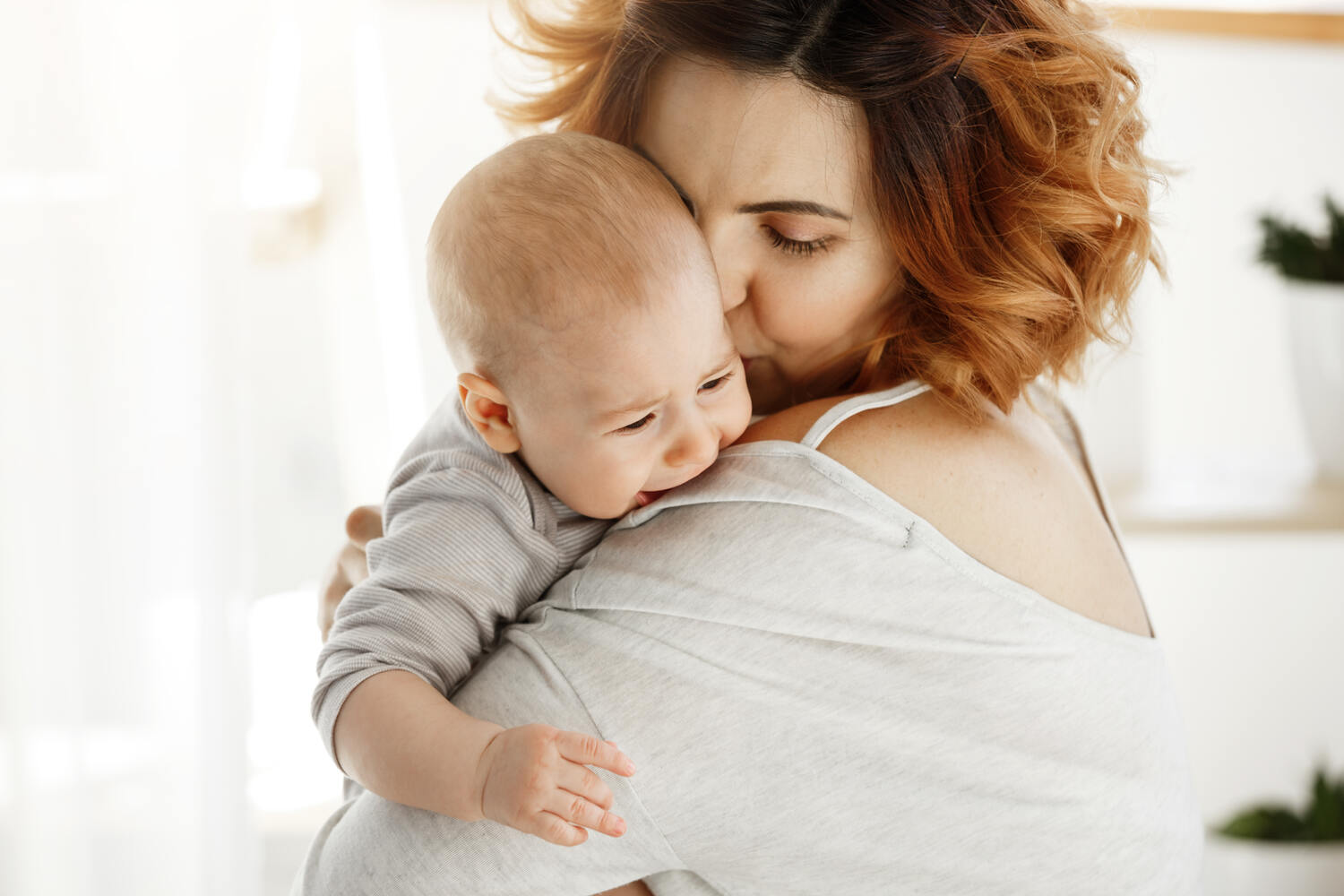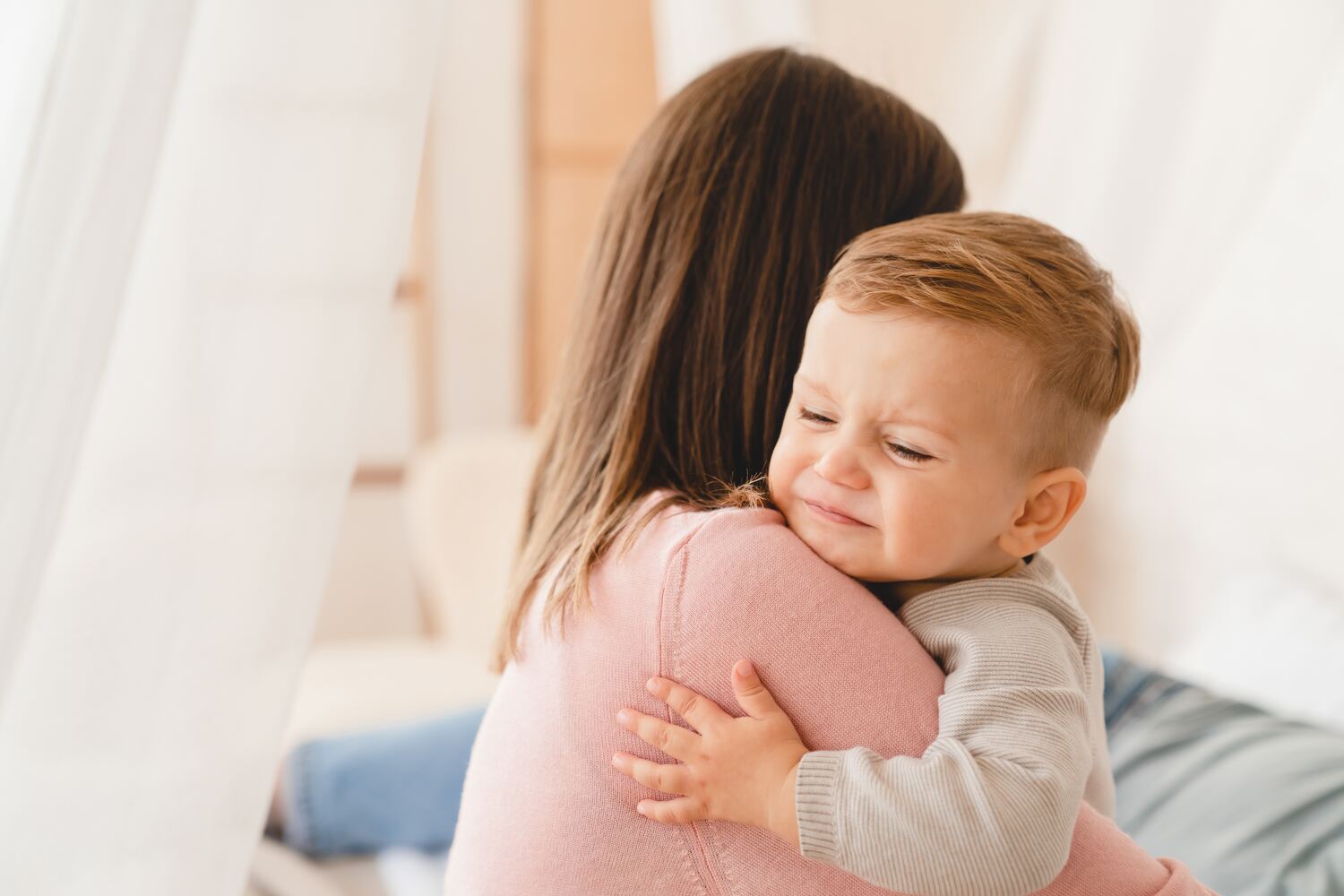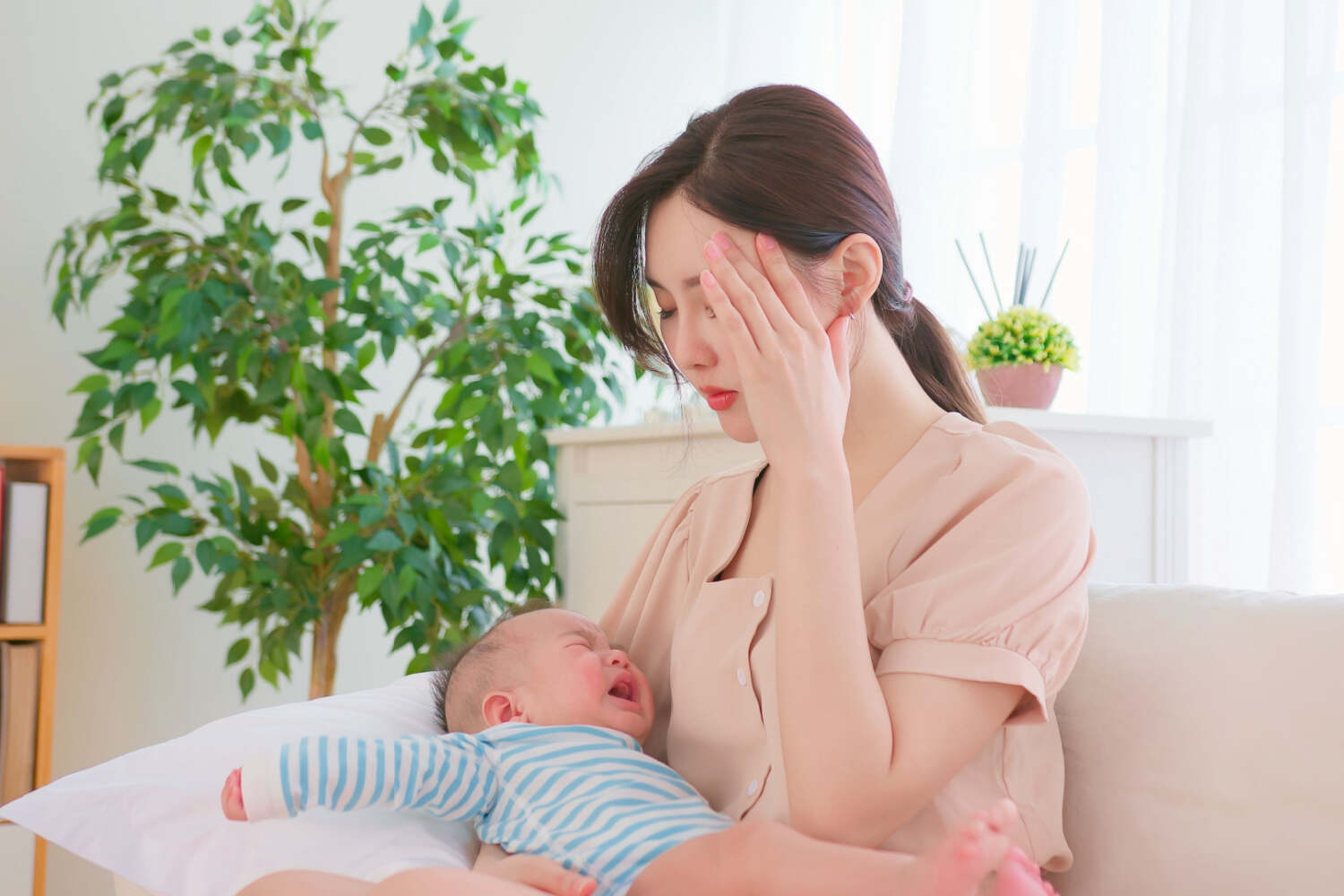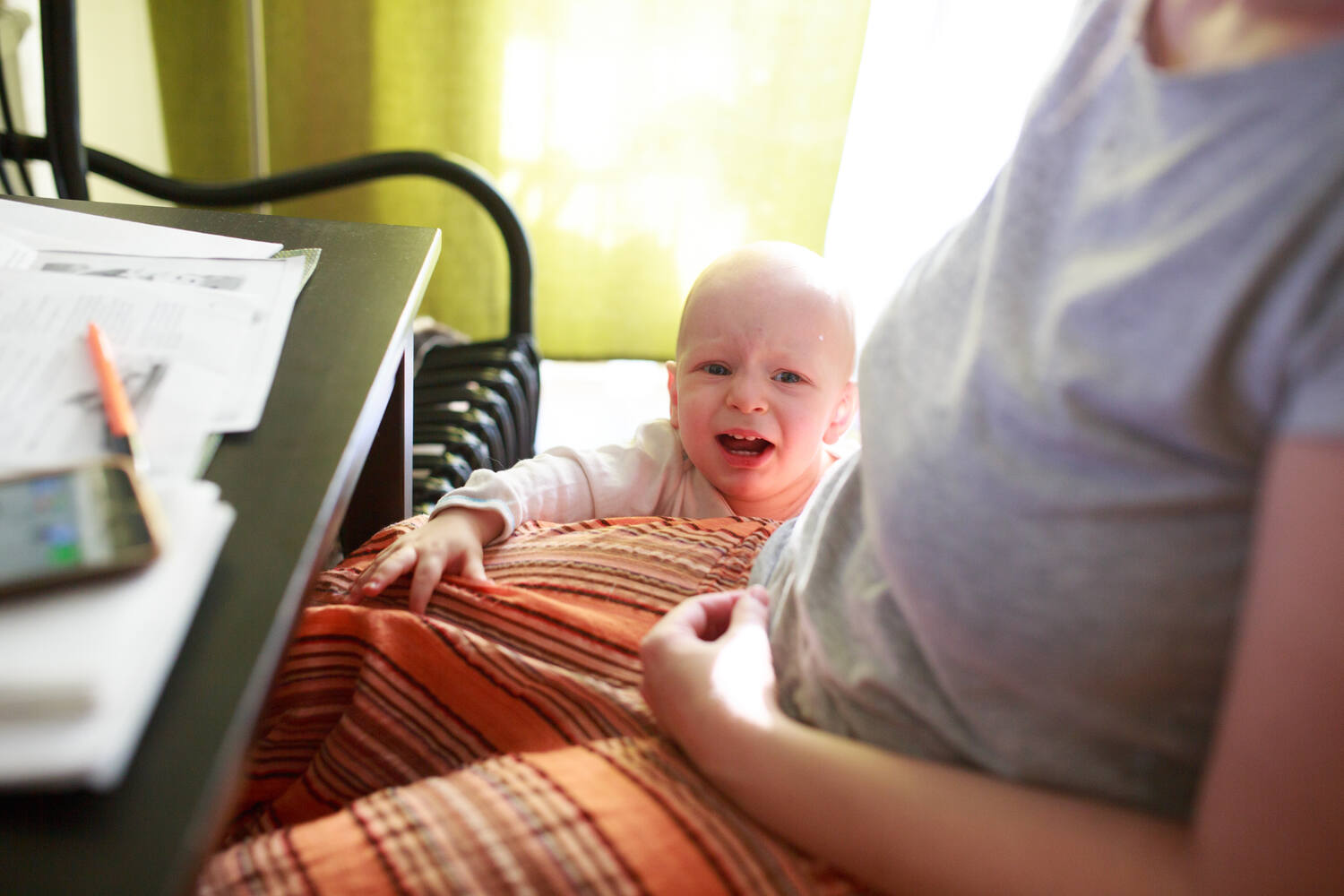
Is your baby getting too attached to you? Are you finding it difficult to leave your baby in someone else’s care for a few minutes and go away because your baby is not allowing you to go? All of these are classic signs of clinginess in babies. Babies wanting to be with their mother and primary caregivers all the time is quite common.
They do not feel the sense of nature and nurture from new people and want to stick to known and familiar faces for the sake of comfort and security. In most cases, being clingy to moms is a temporary phase and goes away with time.
In This Article
- When Do Babies Get Clingy?
- Why Do Babies Get Clingy?
- How to Identify Clinginess in Babies?
- At What Ages and Stages Do Babies Get More Clingy?
- How Long Does Clinginess Last in Babies?
- FAQ’s
When Do Babies Get Clingy?
All babies develop a natural attachment towards their mother or a primary caregiver until they’re a year old or older. They crave emotional and physical closeness and find happiness and warmth in hugs and kisses. However, some babies develop extreme clinginess to their mothers.
They fear abandonment and thereby show signs of clinginess in the form of not leaving their mother’s arms, or becoming too cranky when put down even for a minute. Signs of clinginess also include resistance when held by others, excessive crying, and fussiness when made to play alone. Some clingy babies may also refuse to explore their surroundings or do new activities when the mother is not present.
Most babies start showing clingy behavior when they are 4 to 6 months old. Other babies might show extra attachment to their caregivers a little later; probably by 8 to 12 months. Most babies outgrow their clinginess by the time they are 3 years old (1). This is a normal developmental process unless the clingy behavior gets too bad; wherein the baby screams and shouts excessively when put down by the mother or left alone in a room.
Why Do Babies Get Clingy?

Several developmental and emotional factors can make a baby appear clingy in infancy. Sometimes, a baby may show signs of clinginess because they’re hungry, tired, or need their mother to be with them. Some of the most probable causes of clinginess include
1. Stranger Anxiety
By the time a baby reaches 6 – 8 months, they can naturally identify a known face from an unfamiliar one. Thus, fear of the unknown sets in. This is also known as stranger anxiety. The baby develops insecurity and seeks constant physical and emotional closeness with a known person.
Stranger anxiety leads to extremes of crying, fussiness, and no eye contact with strangers when the mother is not in the room (2). The baby seeks comfort from the mother by trying to get lifted; or wants a soft cuddling immediately to sooth cries.
2. Separation Anxiety
This is one of the main reasons that make a clingy baby. It starts around 6 to 7 months and can continue till the baby transitions into the preschool stage. During infancy, the baby sees the mother as a source of security (3).
When left alone, the baby realizes that the source of security and affection is no longer present. At this time, they get cranky and start showing signs of clinginess.
[Read : Separation Anxiety in Babies]
3. Object Permanence
Another reason for your infant’s clinginess has to do with object permanence. When babies reach halfway in their first year of life, they realize that things and people around them are still present even when they cannot see them in front of their eyes.
Thus, babies who show clingy behavior are aware of the fact that their mother is in a different room or elsewhere even when they cannot see them. Thus, crying takes the form of a call so the mother attend to their needs.
[Read : Object Permanence in Babies]
How to Identify Clinginess in Babies?

Babies display typical behavioral patterns which let us know that they are being clingy. Babies show clinginess in the following ways.
- Crying loudly and being irritable when the mother leaves the room
- Refusing to be put down even for a while
- Resisting going to anyone else other than the mother or the caregiver
- Always wanting physical closeness to the mother
- Refusing to be pacified by others when mother is not around
- Screaming and crying constantly until held by the mother
- Refusing to play with toys or divert attention away from the caregiver
- Wanting to be held in a lap
- Finding it hard to play independently even for short periods
At What Ages And Stages Do Babies Get More Clingy?

Clinginess in babies is a normal developmental process and occurs in stages or phases. Usually, excessive clinginess and a hunt for emotional shelter start around 6 months when the baby realizes that they do not know everyone who enters their room. Most babies feel this insecurity till 2 years until it completely goes away by age 3 years.
1. Newborn Stage (0-3 Months)
In this stage, the baby doesn’t show clinginess because of an emotional need. The crying and crankiness or the need to be carried by the mother is mostly due to hunger, thirst, or a diaper change. At this stage, the baby relies on a caregiver just to fulfill physiological needs.
2. Infant Stage (3-6 Months)
During this stage, babies cling to their mothers because they fear uncertainty. They want their mother’s physical closeness all the time; just to feel safe and protected.
3. Separation Anxiety Stage (6-12 Months)
This stage emerges at about 6 to 8 months and can even continue till 24 months. The timeline varies from one baby to the other. Babies may show signs of extreme clinginess and emotional distress in the form of crying, and screaming when the mother puts them down or is not seen around.
How Long Does Clinginess Last in Babies?

The exact duration of clingy behavior is hard to estimate. However, it usually starts at around 6 to 8 months of age, reaches its peak by 18 months, and can completely go away by 3 years.
The given timeline may vary from one baby to the other. As the baby grows into a toddler and later as a preschooler, they develop more independence.
The fear of the unknown decreases and they gather enough courage to set out freely to the outside world. Thus, clinginess decreases with time as the baby grows.
Clinginess in babies is a normal growth milestone and nothing to worry about. Parents and caregivers must deal with this with patience and give loads of love to their baby to make them feel secure and safe. In most cases, as babies grow they will lose their quality of clinginess and will start getting social.
[Read : Transitional Objects For Babies]
FAQ’s
1. Do Babies Get Clingy When Sick?
Yes, babies may get extra clingy when sick because they feel safe and protected in their mother’s arms. They need the comforting presence of someone who can help them meet both physical and emotional needs. The familiar face of the mother helps to regain body strength and emotional wellness.
2. How Long Does The Clingy Stage Last In Babies?
The duration of clinginess in babies differs as per individual differences, parenting style, and family dynamics. Occasional clinginess is seen during a change in a baby’s life and it’s normal. Usually, babies outgrow this behavior once they reach the toddler stage or by 3 years.
3. How Do I Know If My Baby Is Clingy?
As a mother or a caregiver, you can notice signs of clinginess in your baby. If your baby cries when left alone in a room even for a short time, or refuses to leave you; then they might be showing clingy behavior. Sometimes, if they always want to be held in a lap and never play in the crib alone, it hints towards clinginess.
References
- Separation anxiety | Anna Freud – [https://www.annafreud.org/resources/under-fives-wellbeing/common-difficulties/separation-anxiety/]
- Stranger Anxiety: When Children Face Strangers – [https://www.researchgate.net/publication/318735666_Stranger_Anxiety_When_Children_Face_Strangers]
- Separation anxiety – NHS – [https://www.nhs.uk/conditions/baby/babys-development/behaviour/separation-anxiety/]
Read Also: Top Tips to Cope With A Clingy Baby
